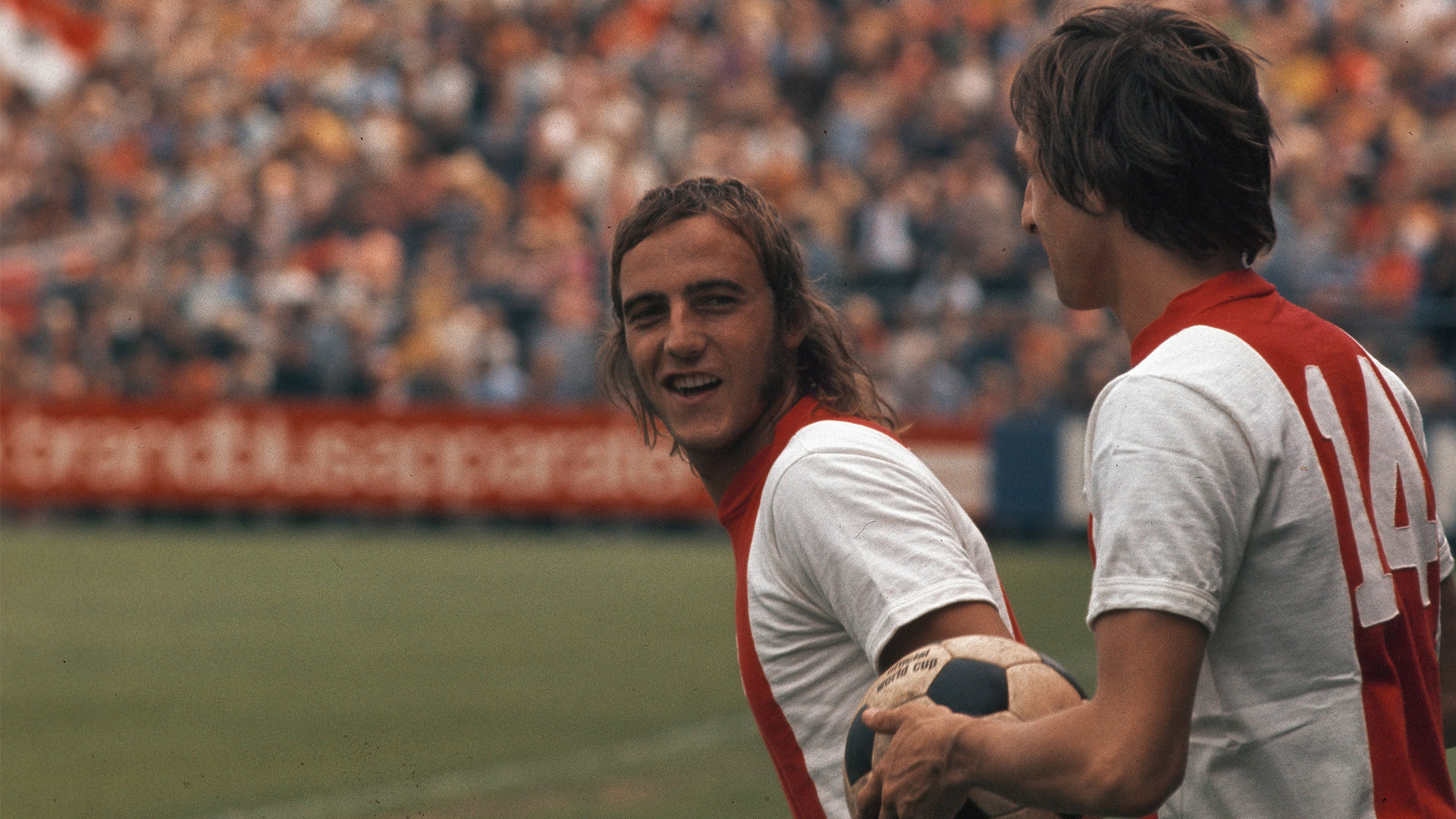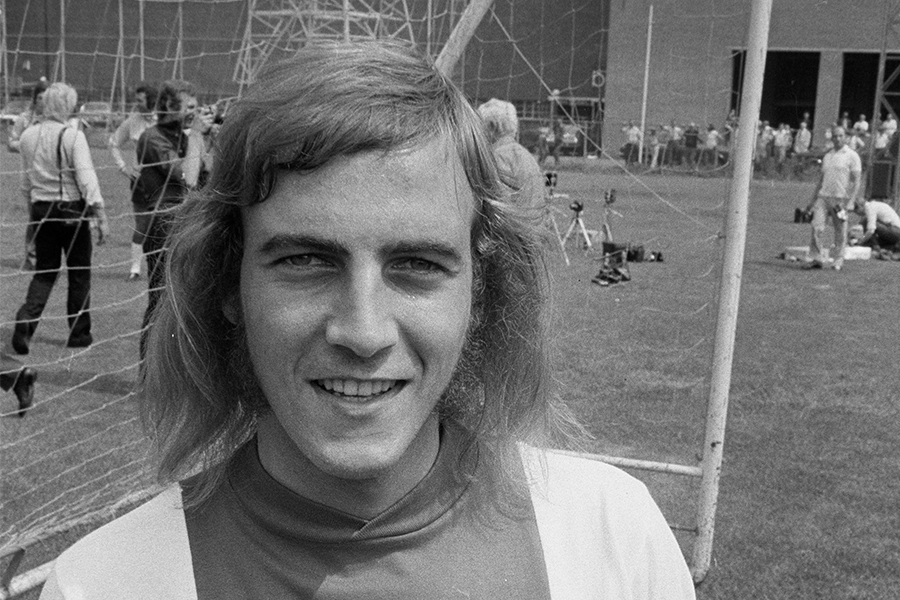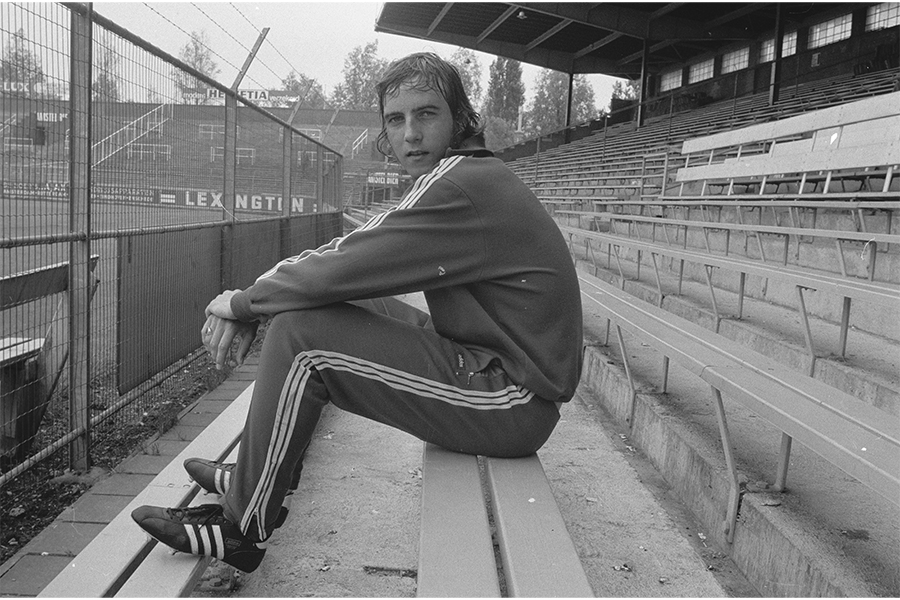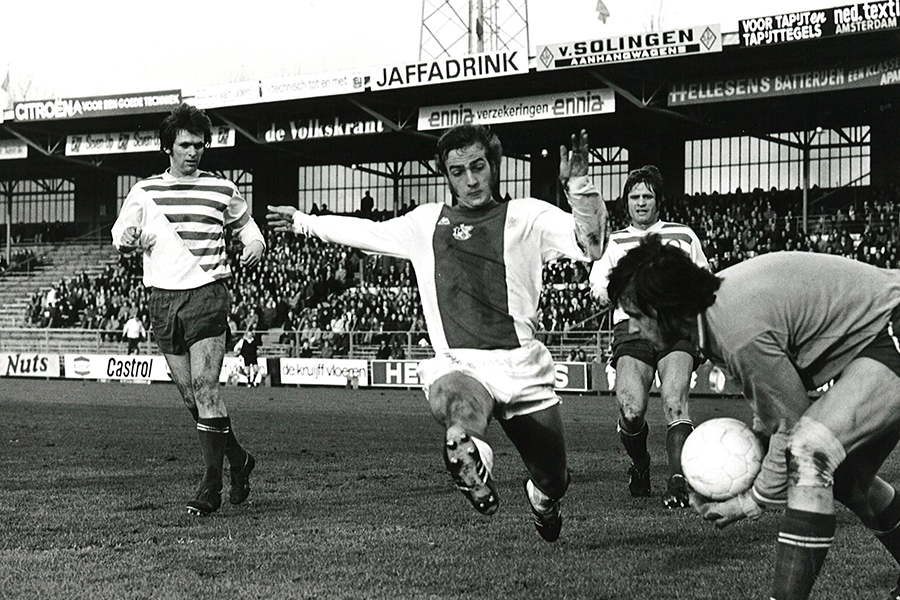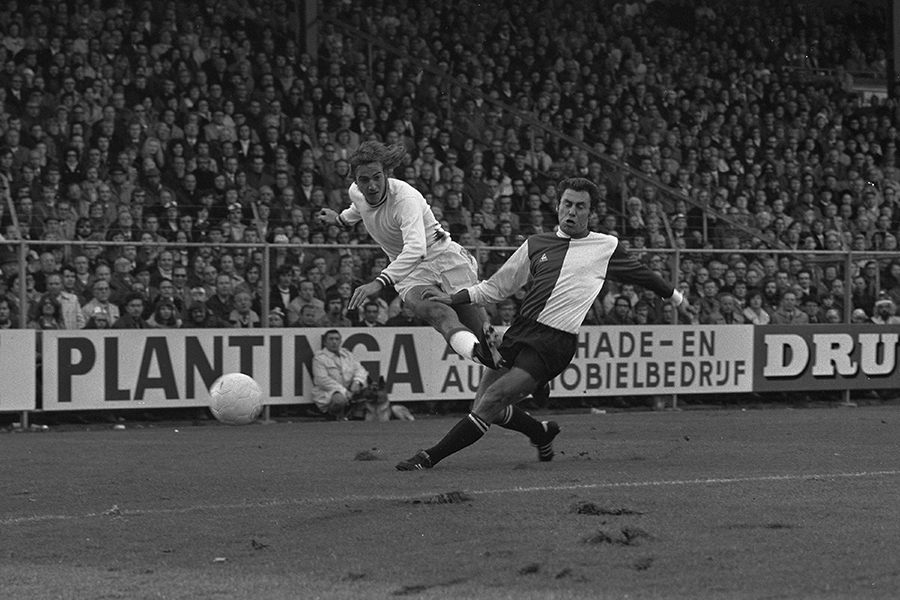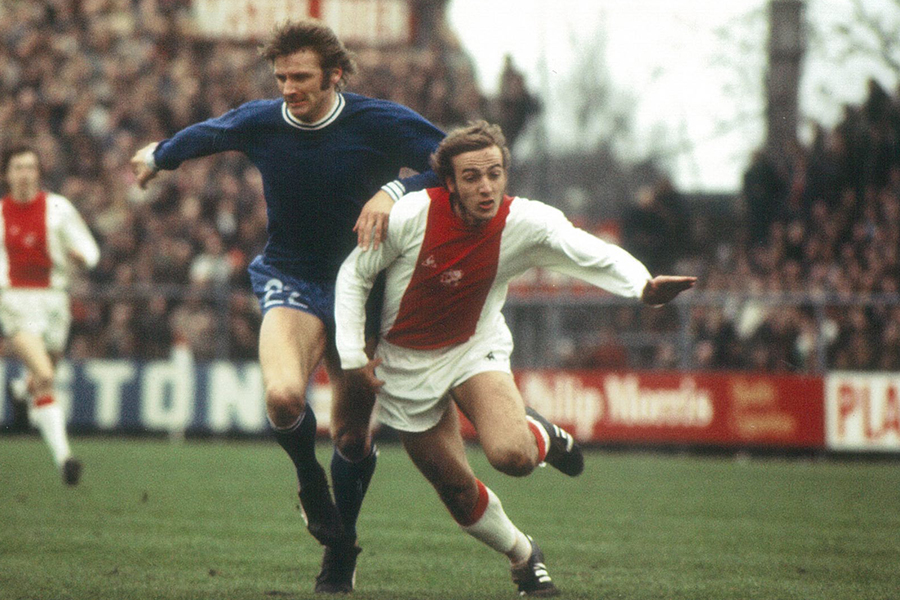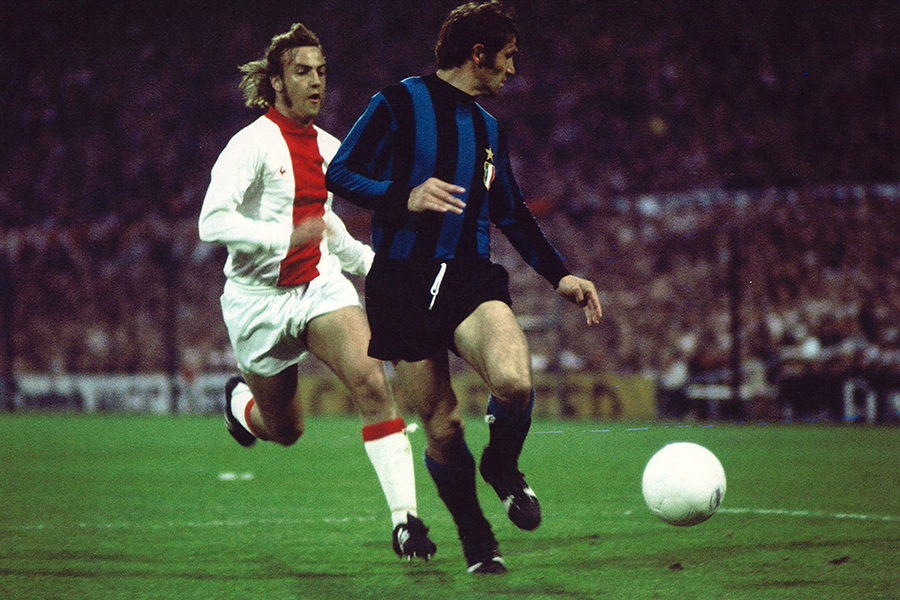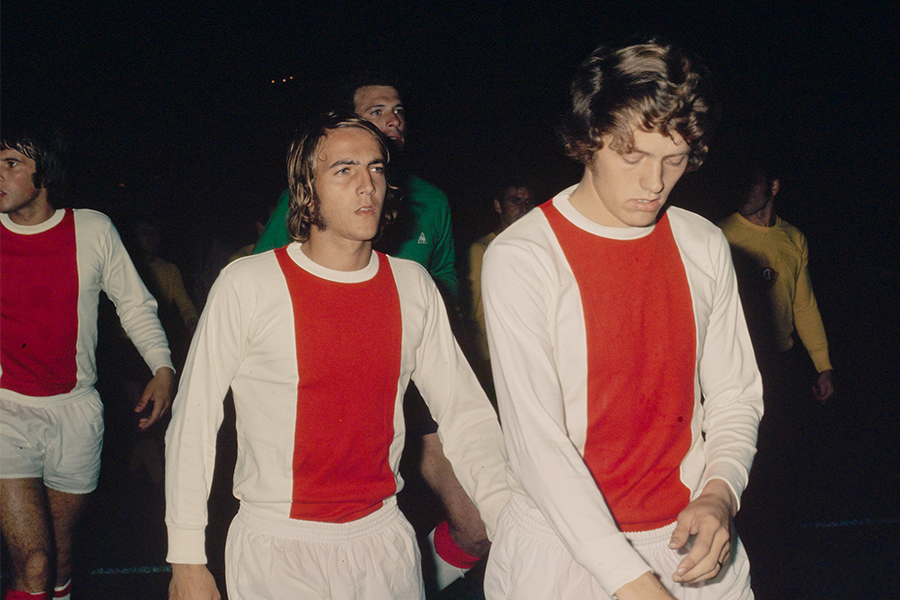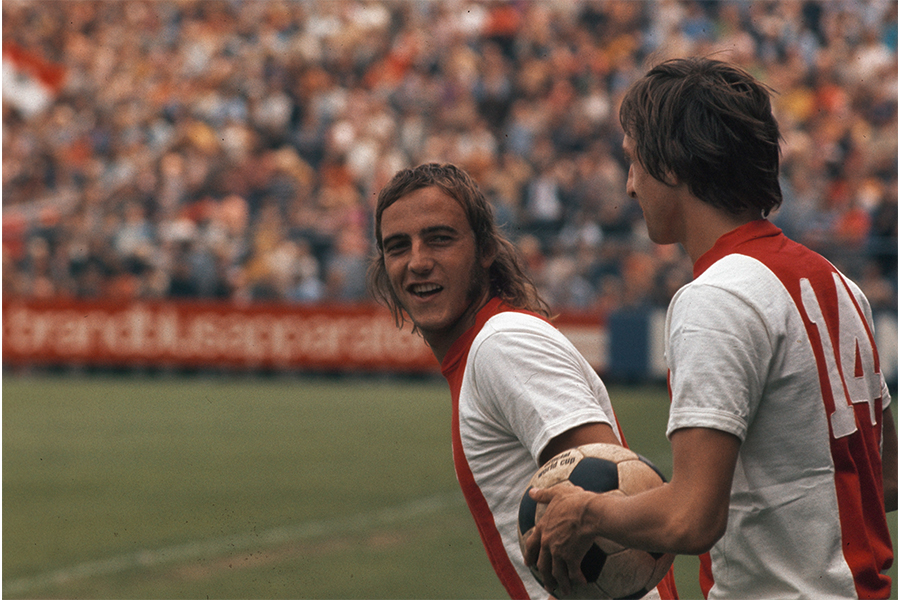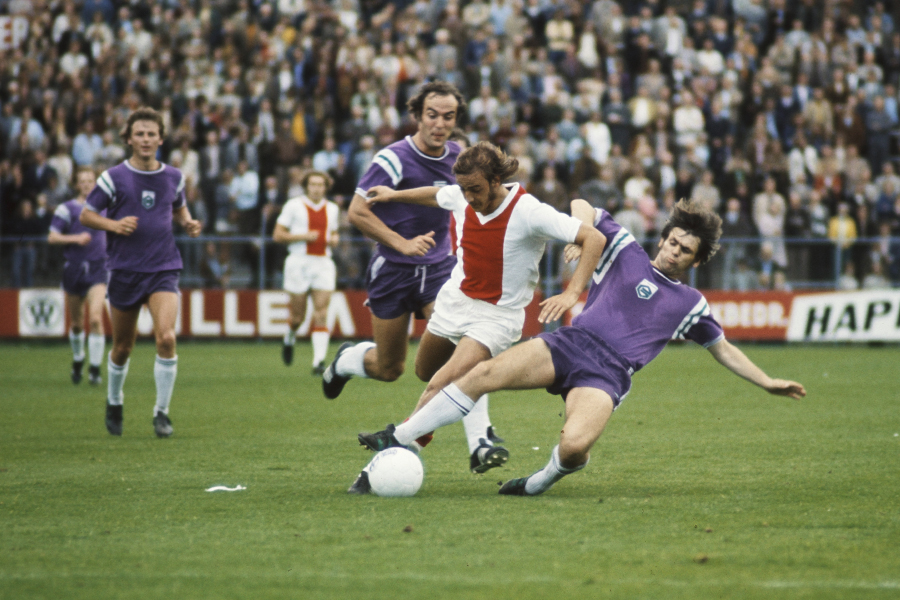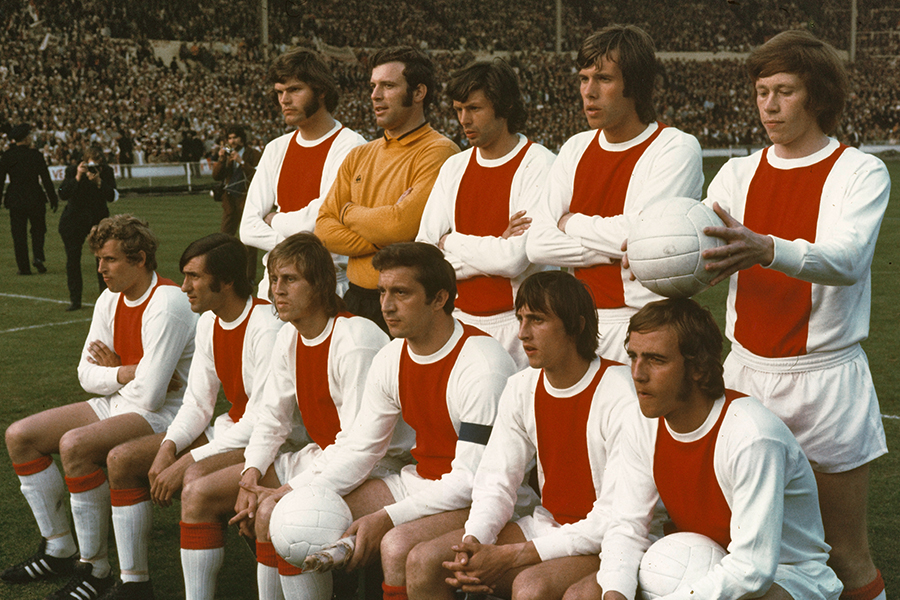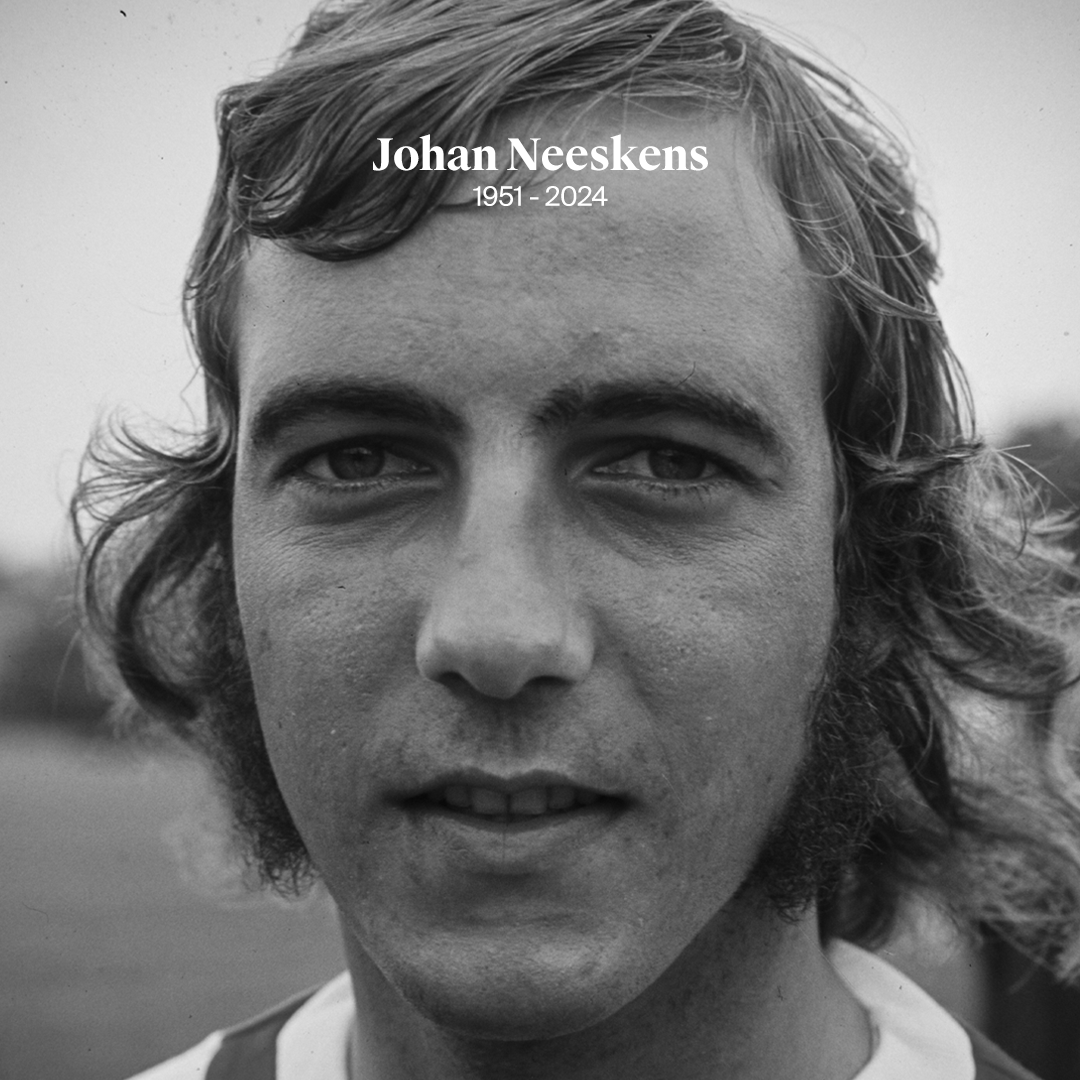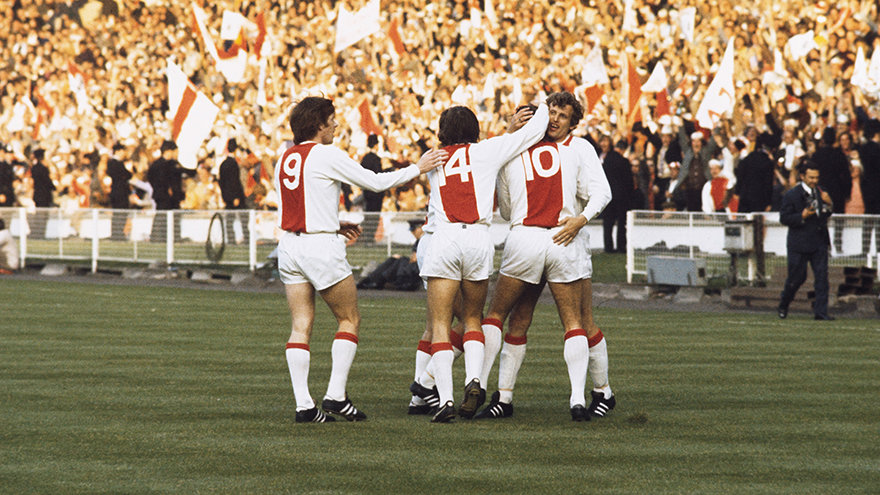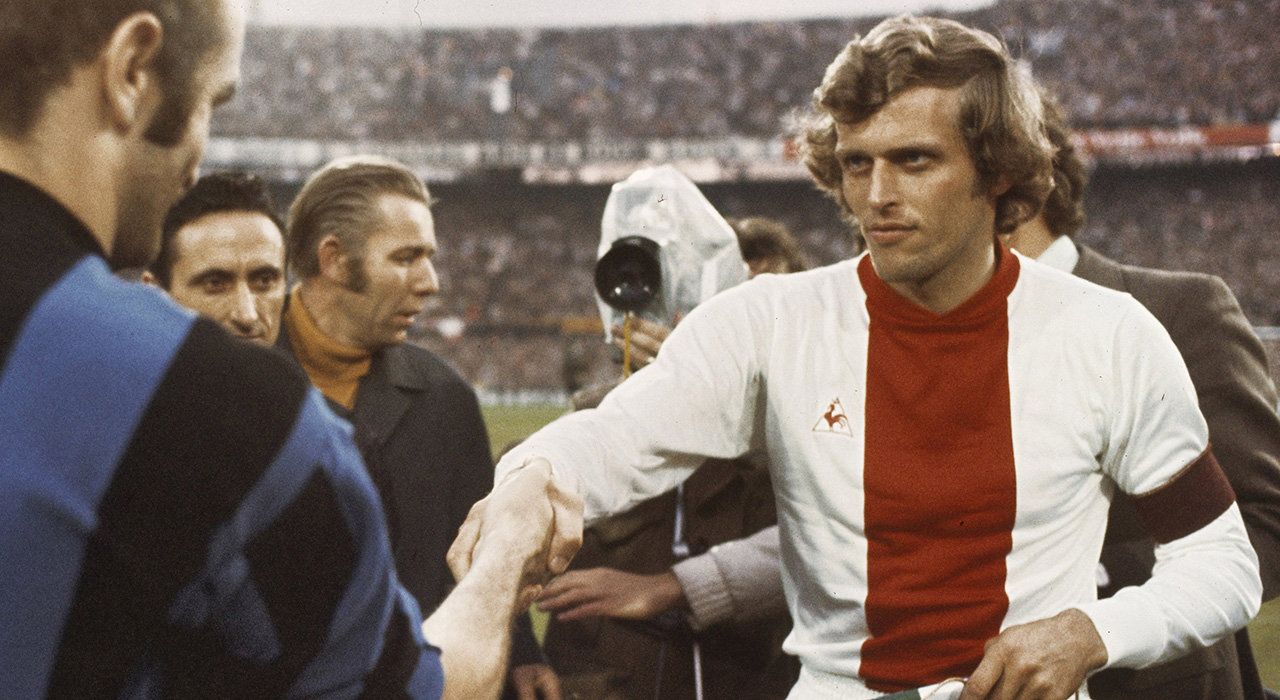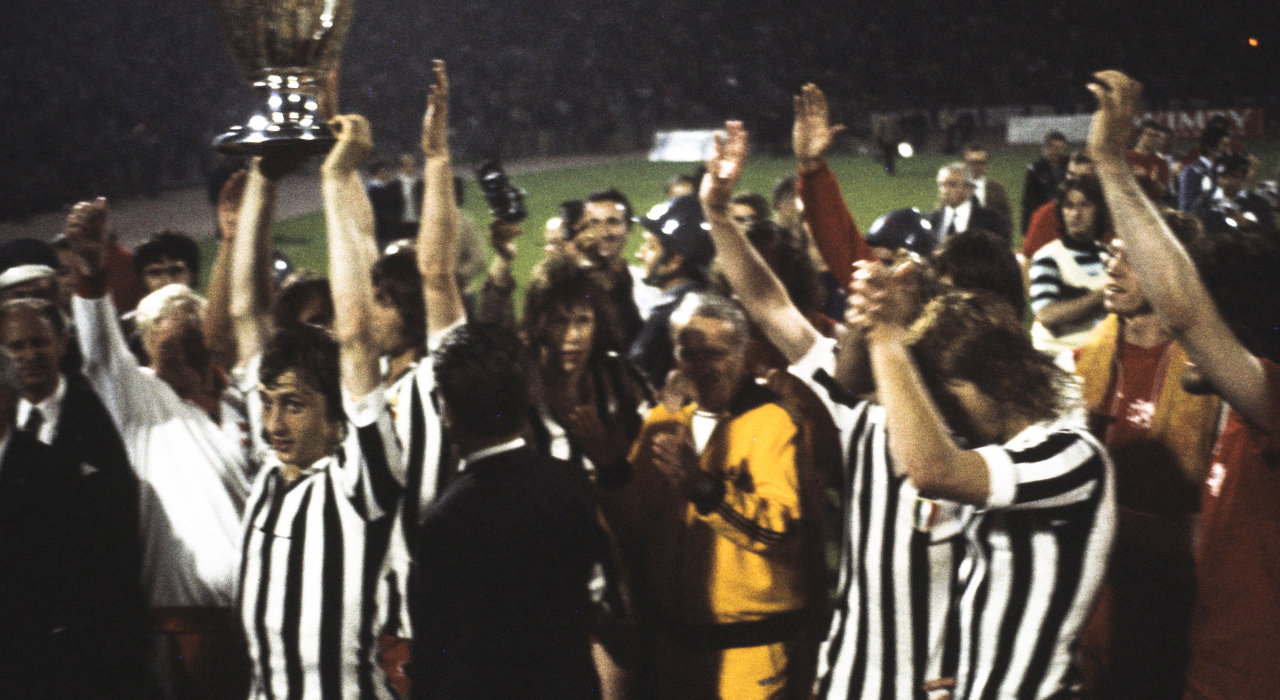On September 15, 1951, Neeskens was born in Heemstede, North Holland. In his youth, he started playing football at the local club in Heemstede: RCH. At school, he was always the best in gymnastics. At RCH, Neeskens began playing in the first team at an early age. Coach Piet Peeman used the youngster as a central defender.
After the summer of 1970, Ajax wanted to sign the young Neeskens. The Heemstede native could join the team of his great idol, Johan Cruijff. At eighteen years old, Neeskens officially became an Ajacied.
Debut
In preparation for the 1970/1971 season, Ajax played a friendly match against Chelsea. Head coach Rinus Michels brought Neeskens on during the match, and he played excellently. From then on, he always retained his place in the starting eleven. At Ajax, he secured a spot in midfield alongside Nico Rijnders. Neeskens appreciated his coach, Michels, who gave him confidence and allowed him to make mistakes.
In Amsterdam, the experienced players took him under their wing. Sjaak Swart did not like it when the young Neeskens travelled back to Heemstede the day before a match by tram, train, and bus, so he took him home every Saturday after training. There, Neeskens and Swart would push the couches together and watch television until Paco Neeskens sent them to bed at a quarter to ten.
In the autumn of 1970, Neeskens played with Ajax in the Europa Cup. In the match against FC Basel in the second round, he scored the winning 2-1 goal. After winning the first match 3-0, Ajax advanced to the quarterfinals. After the match against FC Basel, he was called up for the Dutch national team for the first time. On November 11, the then nineteen-year-old Neeskens debuted in the Dutch national team under coach František Fadrhonc against East Germany.
By then, Neeskens had developed into a versatile player, known not only for his hard tackles but also for his excellent technique and passing. Jan Mulder noted that Neeskens' footballing qualities were sometimes underrated. "He was much more than just mentality. A brilliant passing technique. Speed. He also scored twelve to thirteen goals per season. He was an incredible footballer. When he played, you felt like you were playing with twelve men. And that’s not even allowed."
Best of Europe
After an impressive European campaign, Ajax prepared for the European Cup I final against Panathinaikos in London at Wembley. Neeskens thoroughly enjoyed it. "There you are, with that atmosphere and so many Ajax fans in the stands. Incredible. A year earlier, I was still playing with RCH in the second division. Sometimes, you have to pinch yourself." The final was won, and in his first season at Ajax, Neeskens claimed the biggest prize in European football.
In the years following the Europa Cup I victory, golden times arrived for Ajax. Both in the 1971/1972 and 1972/1973 seasons, the Amsterdam-based team became national champions. Additionally, Ajax made history by winning the Europa Cup I three years in a row. In 1972 and 1973, Ajax was crowned the best football club in Europe. Neeskens played a crucial role in these successes.
In the 1973/1974 season, Neeskens was in his last season as an Ajax player. The native of Heemstede played a total of 171 matches in the Ajax jersey, scoring 39 goals. When he lifted his third Europa Cup I, he was still only 21 years old. Besides the national title (twice) and the Europa Cup (three times), Neeskens also won the World Cup, the Super Cup (twice), and the national cup twice with Ajax.
Neeskens also had great moments as a young player in the Dutch national team. The midfielder played an outstanding World Cup in West Germany. In the final, Neeskens scored in the first minute, but unfortunately, Rinus Michels' team ultimately lost 2-1 to the host nation.
Barcelona
After the World Cup, Neeskens left Ajax. He followed Cruijff to Barcelona, where Neeskens would have five more successful years. 'Johan Segundo', the identity of the first Johan is easy to guess, was also incredibly popular in Spain. After 140 matches in Catalonia, Neeskens sought adventure in the United States and later in Switzerland.
During his time in Barcelona, Neeskens played in another World Cup final. On June 25, 1978, the midfielder lost again: Argentina proved too strong with a 3-1 victory. Neeskens played a total of 49 matches for the Dutch national team, scoring seventeen goals.
After his active career, Neeskens remained involved in the football world. He coached various clubs in Switzerland and was head coach of NEC for four years. Additionally, Neeskens served as an assistant coach for the Dutch national team, Australia, and was involved in the KNVB’s WorldCoaches project.
Ajax wishes Neeskens' family and loved ones a lot of strength during this loss.
